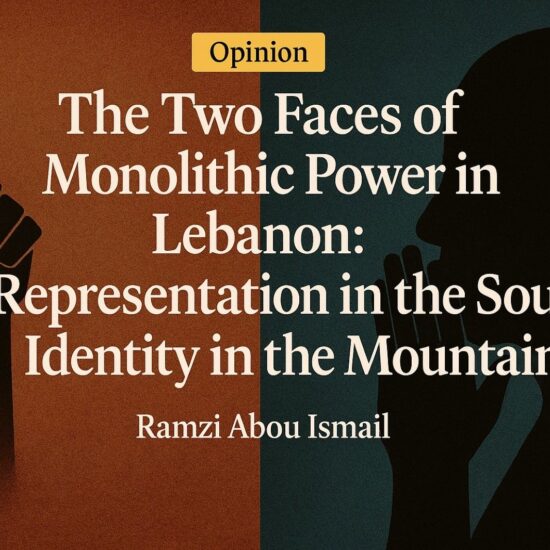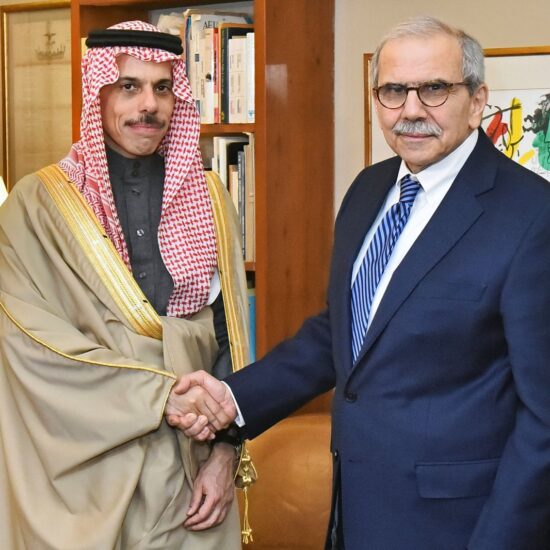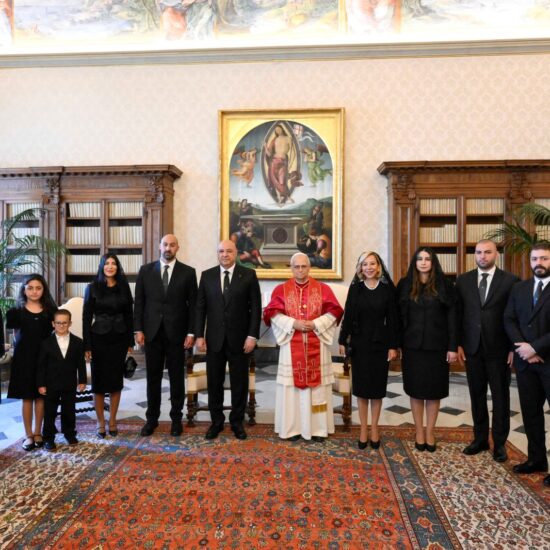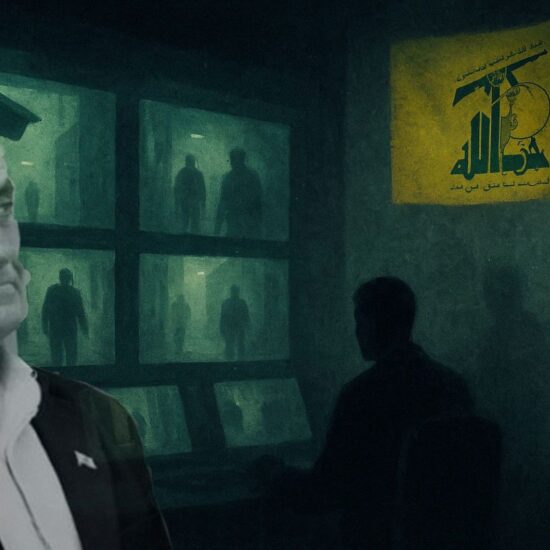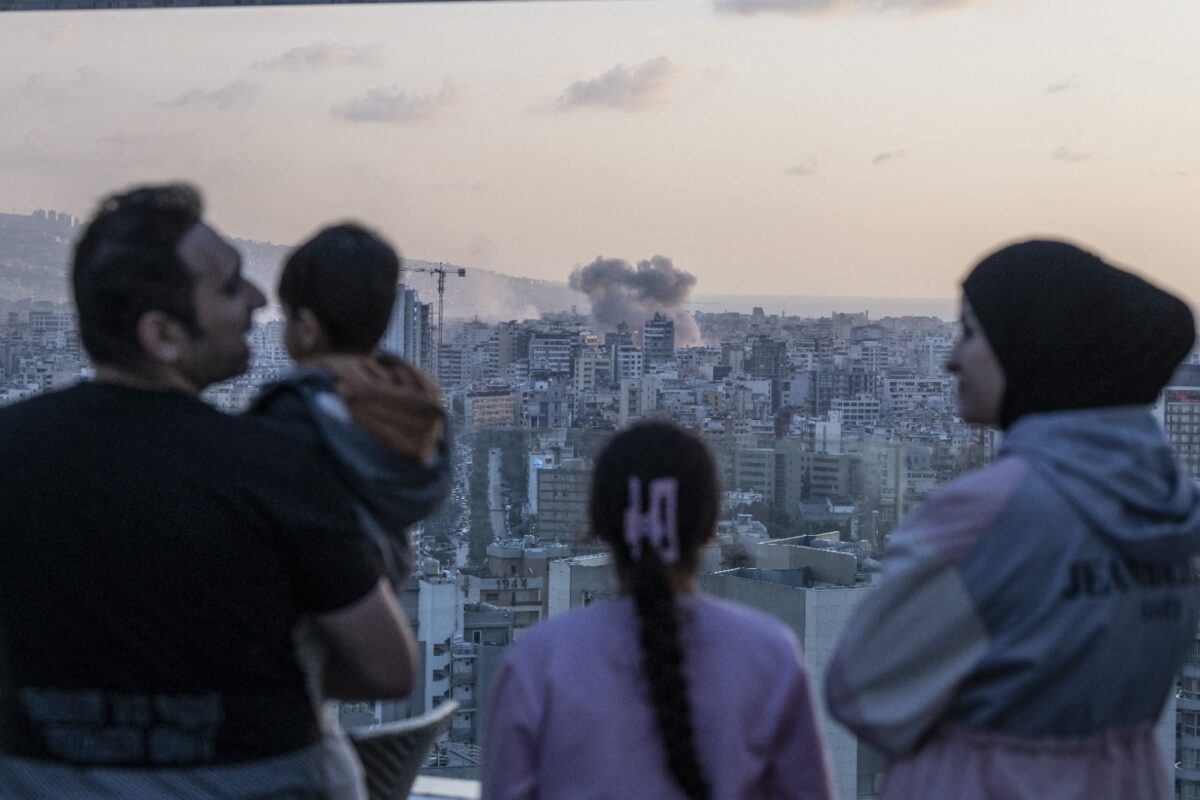
Despite escalating Israeli airstrikes across Lebanon, ceasefire negotiations mediated by the U.S. are advancing with an emphasis on implementing Resolution 1701, yet doubts persist over key terms, operational timelines, and Lebanon's signing authority.
Hopes for a ceasefire faced setbacks on Monday as Israel intensified its attacks on Beirut, striking the city for the third time in two days. Adding to the uncertainty, Axios reported that US Envoy Amos Hochstein had canceled plans to visit Lebanon to discuss a potential agreement.
Meanwhile, Israeli Prime Minister Benjamin Netanyahu expressed doubts about the long-term stability of any truce, emphasizing the need for decisive action. “The important thing is not the piece of paper,” he told Parliament. “To ensure security in the north, we have to take systematic action against Hezbollah attacks that could come. This is not only our reaction but our ability to prevent Hezbollah from building up its power.”
While a ceasefire could theoretically allow thousands of displaced people on both sides of the border to return home, concerns linger about its terms. Leaked documents reportedly show Israel pushing for a US-endorsed clause allowing unilateral military action against Hezbollah in Lebanon – a demand that Lebanon has reportedly rejected.
Despite optimistic public messaging from Lebanese officials, many remain doubtful that ongoing negotiations will yield meaningful or enforceable results.
Israeli airstrikes have continued to wreak havoc across Lebanon, with deadly raids in the Baalbek region claiming dozens of lives. According to Bachir Khodr, governor of Baalbek-Hermel, at least 47 people were killed and 22 injured in the attacks on Thursday. Rescue operations are ongoing in the eastern region, which has been targeted relentlessly in recent weeks.
In Beirut, Israeli airstrikes shook the city’s southern suburbs, unleashing a barrage of nearly a dozen hits that sent massive plumes of debris into the sky. These strikes, some of the most intense so far, targeted Hezbollah strongholds, with the Israeli military claiming it had taken measures to minimize civilian casualties through advance warnings.
Meanwhile, in southern Lebanon, three people were killed in the town of Al-Shaitiyah, near Tyre, according to Lebanon’s Health Ministry. These attacks are part of a broader escalation by Israel, which has been pounding southern, eastern, and suburban Beirut areas since late September. The strikes follow months of rising tensions with Hezbollah, exacerbated by the group’s rocket fire into northern Israel in solidarity with Gaza.
Efforts to de-escalate the violence are ongoing, with Amos Hochstein meeting with Israeli Prime Minister Benjamin Netanyahu and Defense Minister Israel Katz on Thursday. His latest trip to Israel aims to push negotiations forward, even as the violence on the ground intensifies.
If talks progress as expected, the discussions are likely to pivot toward the practical steps of implementing a ceasefire, including determining the timeline for Israeli withdrawal, deploying the Lebanese army, and ensuring oversight of UN Resolution 1701 across Lebanon and its border with Syria.
Sources from Ain al-Tineh dismissed rumors of an agreement involving a 60-day truce that would transition into a permanent ceasefire. They emphasized that such claims, describing the period as a trial phase to evaluate the resolution’s implementation, are unfounded and have not been part of the negotiations.
While Speaker Nabih Berri awaits updates from US mediator Amos Hochstein – whether through his return to Beirut or consultations in Washington via Paris – French diplomatic sources disclosed that Hochstein recently met with French Ambassador Hervé Magro in Beirut. The meeting was reportedly aimed at aligning US and French positions on the ongoing mediation efforts.
The same French sources denied speculation about a formal signing event in Paris to seal the ceasefire or Resolution 1701’s application. Instead, they underscored that the resolution is already binding and does not require a new agreement. This has sparked debate over who in Lebanon would have the mandate to sign such a document if it were necessary.
According to lawyer and political activist Louay Ghandour, Speaker of Parliament Nabih Berri is acting outside his constitutional role. According to Ghandour, Berri is negotiating as the head of the Amal Movement and as a proxy for Hezbollah, a role that has no constitutional legitimacy.
“Berri, as Speaker, has no authority to engage in external negotiations. His role is strictly limited to presiding over parliamentary sessions and managing legislative functions. What we are witnessing now is a blatant violation of Lebanon’s sovereignty and constitution,” Ghandour stated.
He criticized the negotiations as being fundamentally flawed, describing them as “an Israeli-Iranian agreement conducted under the pretense of Lebanese involvement.” He argued that these talks are orchestrated by external actors, with decisions being funneled through Hezbollah. Lebanese officials, including Prime Minister Najib Mikati, are allegedly kept in the dark. “Neither Mikati nor any minister in his government knows the details of these negotiations,” Ghandour noted.
He further stressed that any agreement binding Lebanon must follow a clear constitutional process: negotiations initiated by the president (or, in the president’s absence, the cabinet collectively), followed by approval in the Council of Ministers and a vote in Parliament. “Without these steps, it is neither an agreement nor a treaty – it’s a violation of Lebanon’s legal and constitutional framework,” he said.
Regarding the ongoing diplomatic efforts, Ghandour dismissed Prime Minister Mikati’s role in the negotiations. “Mikati has no real involvement in ceasefire talks. His role has been limited to maintaining diplomatic channels and ensuring civilian air traffic safety through coordination with the United Nations and other international actors,” he explained.
Ghandour also highlighted the systemic collapse of Lebanon’s state institutions, which has left the country sidelined in critical decisions about its own future. He lamented that Lebanon’s sovereignty is being eroded.
According to him, even if the Lebanese government were involved in negotiations, the current state of affairs would undermine their legitimacy: “The outcome would still be dictated by external powers, but at least the Lebanese state’s role could be salvaged in appearance and legal standing.”
He concluded by warning of the dire consequences of this approach: “What we are seeing is the final nail in the coffin of the Lebanese Republic. The international community no longer takes Lebanon seriously because its decisions are controlled by a militia operating outside the bounds of the state.”




